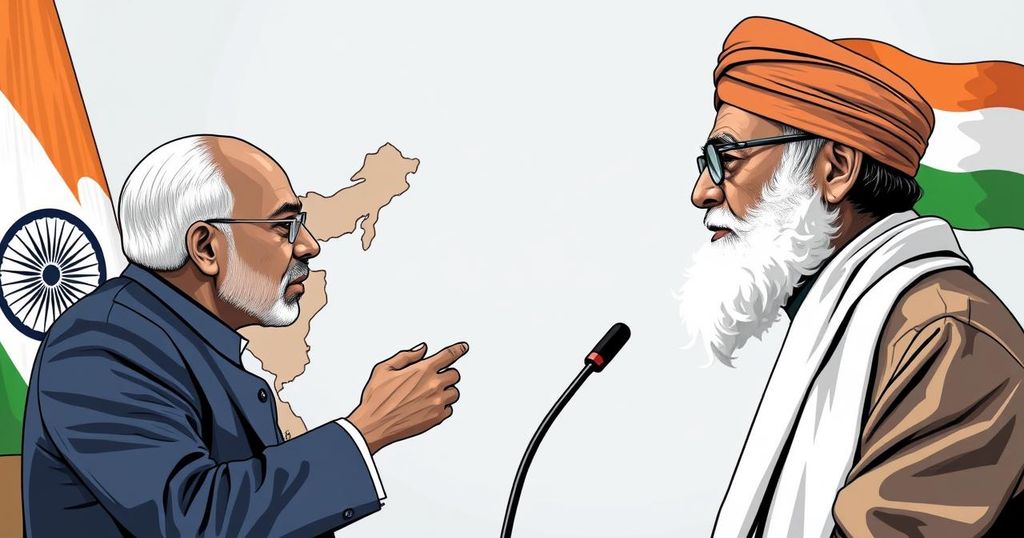Dr. S. Jaishankar’s Address at SCO Summit: A Diplomatic Appeal for Trust and Cooperation
At the SCO Summit in Islamabad, India’s External Affairs Minister Dr. S. Jaishankar addressed the lack of trust and cooperation with China and Pakistan, emphasizing the need for mutual respect and genuine partnerships. He highlighted the detrimental effects of terrorism and extremism on regional relations and outlined the potential benefits of cooperation in various sectors if these challenges are effectively addressed.
During his address at the Shanghai Cooperation Organization (SCO) Summit in Islamabad, India’s External Affairs Minister Dr. S. Jaishankar subtly criticized China and Pakistan while discussing the current challenges faced within the region. He stated, “If trust is lacking or cooperation inadequate, if friendship has fallen short and good neighbourliness is missing somewhere, there are surely reasons to introspect and causes to address.” He emphasized the importance of recommitting to the foundational principles of the Charter, which he believes is essential for fostering cooperation and integration. Dr. Jaishankar’s remarks came in the context of escalating tensions, highlighting the erosion of trust due to unilateral violations of border agreements by China and the use of cross-border terrorism as a state policy by Pakistan. The bilateral relations between India and Pakistan have significantly deteriorated, with India asserting that dialogue can only occur if Pakistan acts to eliminate terrorism. Similarly, relations with China have also suffered, particularly following numerous unilateral provocations along the Line of Actual Control. While addressing the delegates, Dr. Jaishankar asserted that successful cooperation must be rooted in mutual respect for sovereignty and territorial integrity, and should foster genuine partnerships free from unilateralism. He warned that the enduring global issues of “terrorism, extremism, and separatism” impede progress in trade and connectivity, stating that commitment to addressing these challenges is crucial for development and stability. Moreover, he presented a vision of potential regional cooperation, highlighting the benefits such as enhanced industrial collaboration, increased employment possibilities through MSME cooperation, and improved logistics and energy efficiencies. Dr. Jaishankar lamented that addressing these “three evils” would create a conducive environment for growth in several sectors including health, food security, and environmental sustainability. In conclusion, Dr. Jaishankar remarked on the inevitable movement towards a multipolar world, emphasizing that globalization presents new trade and investment prospects. He suggested that regional cooperation would not only benefit the nations involved but also inspire others to partake in similar collaborative efforts, reinforcing the potential for a more prosperous and stable future for all.
This article discusses remarks made by Dr. S. Jaishankar, the External Affairs Minister of India, during the SCO Summit, where he addressed the tensions between India, China, and Pakistan. The summit served as a platform for discussing regional cooperation amidst rising challenges, particularly related to trust deficits and unilateral actions that exacerbate conflicts. Jaishankar’s speech hinted at the need for genuine partnerships based on mutual respect and highlighted the detrimental effects of terrorism and extremism on regional cooperation. His emphasis on the potential for collaborative economic and social development further underscores the importance of finding common ground to improve relations.
Dr. S. Jaishankar’s address at the SCO Summit articulated the pressing need for trust and cooperation in the region, particularly between India, China, and Pakistan. He highlighted that the absence of good neighborliness necessitates introspection and action. His call for mutual respect and partnership is crucial for addressing the fundamental challenges of terrorism and extremism, which hinder trade and growth. Ultimately, a collective commitment to overcoming these obstacles can lead to improved conditions for cooperation, yielding benefits across various sectors and ultimately fostering a more stable and prosperous region.
Original Source: www.ndtv.com








Post Comment